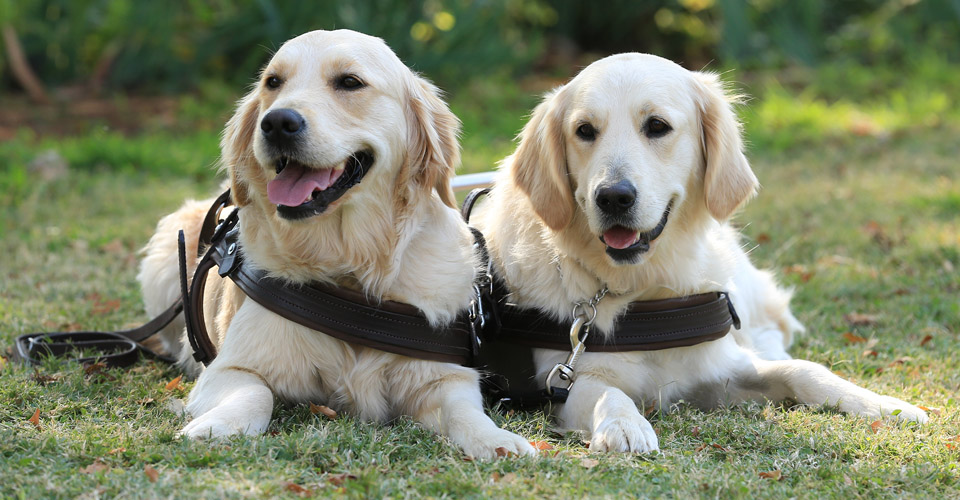Who cares for the dogs that care for us? What does it take to keep these supawheroes healthy? There are many unsung heroes whose support forms the backbone of the SA Guide-Dogs Association. As a non-profit organisation, they don't have the financial muscle to carry the costs of ensuring that the GDA dogs are adequately cared for. With annual vet bills exceeding R1 500 000 they rely on your donations and the generosity of two veterinary practices who have been supporting them for years.
1. Bryanston Veterinary Hospital
The partnership between the Bryanston Veterinary Hospital (BVH) and the GDA extends over 50 years. When Dr Bruce Irvine-Smith established the BVH in 1970, the GDA was its first client.
“It is our belief in the importance and significance of the work of the Association that motivates us to support it. A guide, service, and autism dog is far more than just an assistance dog; it becomes its owner’s faithful companion.” – Dr Remo Lobetti, The BVH
The BVH provides all aspects of veterinary care, including after-hours care. Apart from general day-to-day medical requirements, the practice conducts screening x-rays on the GDA puppies at 16 weeks. The BVH subsidises routine consultation fees and the spaying and neutering of the dogs, and assistance to dogs with special dietary requirements. Their support extends to the staff in education and help whenever it is needed.
2. Cape Animal Medical Centre
The Cape Animal Medical Centre (CAMC) has been the GDA’s trusted veterinarians in Cape Town for five years. The CAMC supports the Association by providing primary health care to the puppy raising scheme. Their generous contribution includes all vaccinations, routine checks, spays, and neuters. In addition, the practice makes a monetary donation annually and offers a 45% discount on all professional fees.
“The South African Guide-Dogs Association for the Blind is a phenomenal organisation doing fantastic work for many years! We are proud to say that we have assisted in helping this brilliant Association, and we continue to witness them do amazing things to help the visually and physically disabled community and children with autism.” – Dr Colin Levitan, The CAMC
We want to thank the vets at the BVH and the CAMC who keep a tight leash on these pets’ health. A healthy, happy dog can make a remarkable difference to the life of a person with visual or physical impairment or a child with autism.



